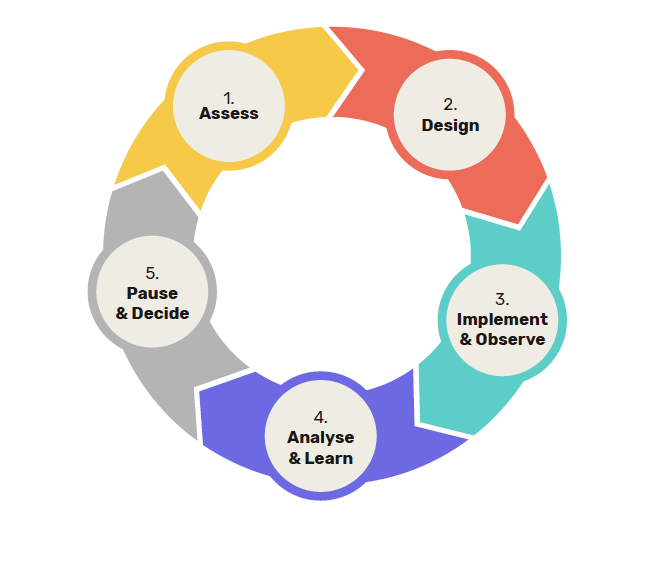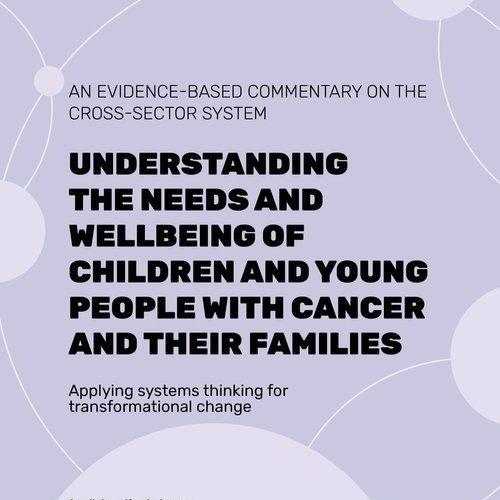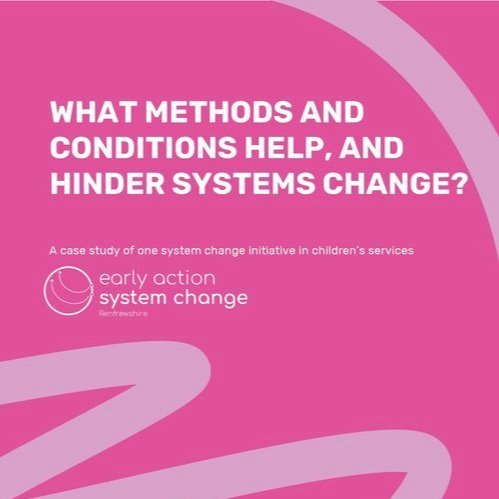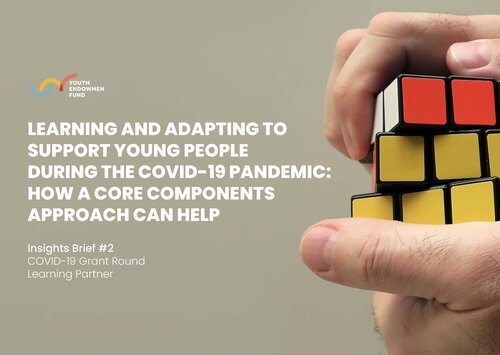
Research & Resources

Anti-Racism Action Framework: Centring Equity in Research and Design Practice
We are committed to embedding anti-racism and equity across our research, design and organisational practice. This is key to our mission of advancing systemic change with and for children and young people and dismantling the systems of oppression that hold children and young people back from thriving.
To support practitioners and organisations across our sector who share this commitment to equity, we’ve published our Anti-Racism Action Framework: Centring Equity in Research and Design Practice

Thriving Futures: Driving systemic change with and for children and young people
We’re working for a future where people, communities and services work together to shape effective systems that give all children and young people a fair chance to grow up happy, safe, healthy and thriving. We’re doing that by harnessing the power of evidence, experience and design to tackle complex challenges with and for children and young people.
Our new strategy, Thriving Futures: Driving systemic change with and for children and young people, sets out our bold and collaborative vision for what the next five years look like for us and the work that we do.

Our anti-racist research approach: A position paper
Racism pervades social research and design. As a social research organisation, we at Dartington Service Design Lab have been reflecting on how we perpetuate racism and inequality – but also how we can challenge it.

Rapid-cycle design and testing method
Rapid-cycle design and testing tackles these problems: it empowers those who are delivering a service to asks the questions they care about, to find the answers themselves, and decide what the implications of those answers are.

An integrated approach to evidence for those working to improve outcomes for children and families
At Dartington Service Design Lab, we think about evidence as data or information – ideally from multiple sources – that is synthesised and critically appraised to inform better decision-making.
10 Years On: An Evaluation of Lambeth Early Action Partnership (LEAP)
In 2015, the Lambeth Early Action Partnership (LEAP) became one of five local partnerships forming part of A Better Start—a ten-year national programme funded by the National Lottery Community Fund. Now, a decade on, Dartington Service Design Lab is proud to present the findings from a comprehensive programme evaluation.

‘My Future’ Final Report: Rapid-cycle design and testing with Chance UK
Using rapid-cycle design and testing, we partnered with Chance UK to improve the design, implementation and continuous monitoring of the My Future programme: a 9-month mentoring programme delivered to children aged 5-11 years who live in Camden and Southwark.

ChildrenCount Scotland
This online portal contains data gathered from areas across Scotland who have implemented the ChildrenCount Wellbeing Survey capturing the needs of children and young people via self-report and parent-report.

Pathways To Connections
As part of our commitment to sustainable and participatory approaches to evidence, we wanted to promote the learning from the work co-designed by our three Community Researchers living and working in Lambeth, working with us to evaluate the Lambeth Early Action Partnership (LEAP) systems change project.
Using this method helps unpick complex, place-based systemic problems and can support tailoring services to better serve communities. We are sharing these insights to support others in the research and evaluation community who are thinking about or already undertaking community-led research, particularly in the early years sector.
State of the System Report: Understanding cancer care for children, young people and their families
In 2023, four of the UK’s leading children’s and young people’s cancer charities joined forces with Dartington Service Design Lab to create a shared, evidence-based understanding of what is needed to build a better future for children and young people with cancer. We surveyed more than 1,500 young people with lived experiences to support the findings and help address gaps in the system.

State of the system: Understanding the needs and wellbeing of children and young people with cancer and their families
In 2023, Dartington Service Design Lab joined forces with the four UK leading children and young people’s cancer charities to create a shared, evidence-based understanding of what was needed to build a better future for children and young people with cancer.

Our Learning with PEDAL: Using a Rapid-cycle design and testing to develop the “Playtime with Books” programme
Dartington Service Design Lab partnered with University of Cambridge Centre for Research in Play in Education Development and Learning (PEDAL) to develop new virtual ways to support parents and children to engage in book sharing, which has traditionally been done face-to-face . We are now releasing the final report from this work and sharing our learning for others to put into practice.

Hard won lessons: A decade review bringing about systemic change in children's services
At the Lab, we’ve been developing and refining our approach to facilitating systemic change, by generating and integrating diverse evidence of what children and young people need and want. We have had varying degrees of success. We’re releasing our report from the Early Action Project in Renfrewshire to both reflect on our experiences of trying to bring about systemic change in children’s services and encourage others to learn from our approach, to support the long-term sustainability of systems change that is both wanted and needed.

What methods and conditions help, and hinder systems change?
This insight summary seeks to deepen our understanding of how to progress transformational change programmes. It builds upon decades of experience trying to achieve systemic change in children's services.

Evaluation in times of uncertainty: Applying learning from COVID-19
The Youth Endowment Fund Learning Partner has written this Insights Brief to support organisations adapting their work with young people during the COVID-19 pandemic, particularly those living in difficult circumstances and who might be at risk of becoming involved in crime and violence.

Learning and adapting to support young people using a core components approach
The Youth Endowment Fund Learning Partner has written this Insights Brief to support organisations adapting their work with young people during the COVID-19 pandemic, particularly those living in difficult circumstances and who might be at risk of becoming involved in crime and violence.

Engaging with young people during the COVID-19 pandemic
Developed by the Youth Endowment Fund Learning Partner, this Insights Brief covers the changes your organisation can make and the ways you can work with others to support young people at risk of becoming involved in crime and violence through this crisis.

9 Steps for Reaching Families Remotely
When the pandemic hit, service providers were needed more than ever. Unable to rely on their normal means of reaching the communities they serve, the search for digital solutions began. As did the question of how to tackle the complex need of digital inclusion, for those without devices, data or digital skills.


FNP ADAPT Final Report
Five years after beginning the FNP ADAPT project – an ambitious pilot attempting to adapt the way FNP is delivered in the UK - we are pleased to share the final report with all our many learnings and recommendations. The report showcases the many stages of our rapid-cycle and testing methodology, with particular attention being paid to the clinical and
programme adaptations, as well as the evaluation stage.
